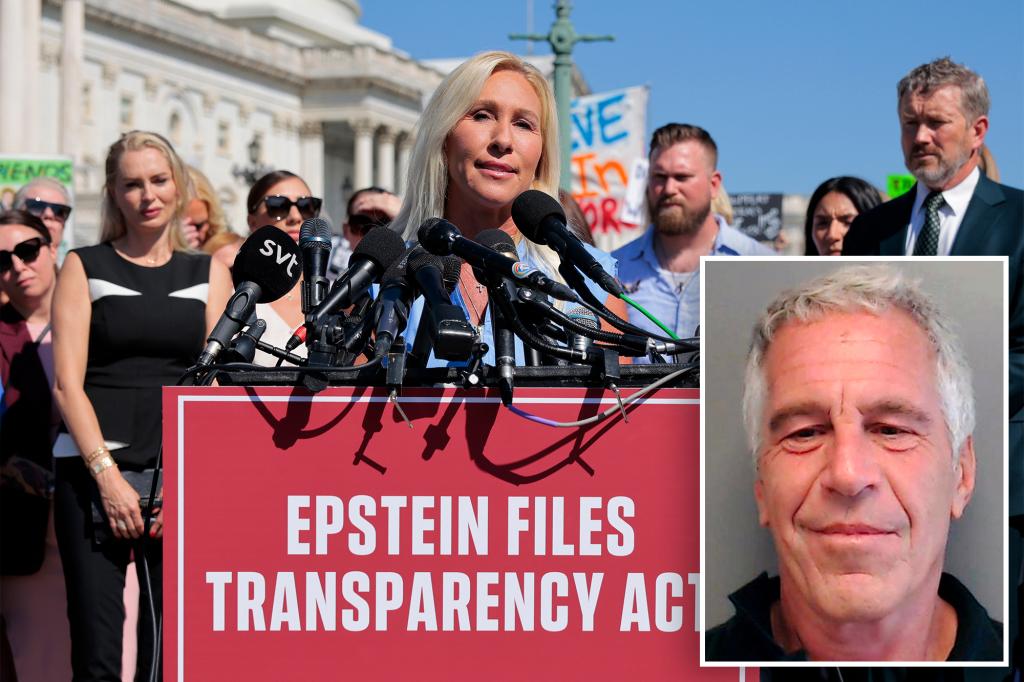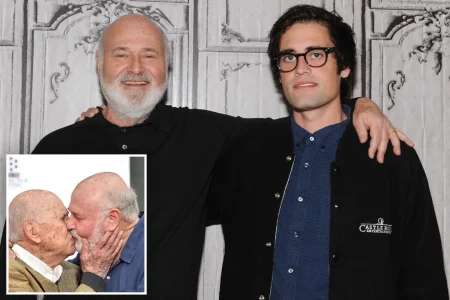Marjorie Taylor Greene’s Stand for Transparency in the Epstein Case
In a striking declaration that has captured national attention, Georgia Congresswoman Marjorie Taylor Greene recently made a disturbing preemptive statement on social media platform X, asserting that she is “not suicidal” and is, in fact, “one of the happiest healthiest people you will meet.” This unusual pronouncement comes in the context of her support for House Resolution 581, which aims to release files related to Jeffrey Epstein’s case. The Congresswoman’s statement reflects the intense atmosphere surrounding the Epstein investigation, with Greene suggesting that if anything were to happen to her, people should investigate “which foreign government or powerful people would take heinous actions to stop the information from coming out.” This kind of statement, while alarming, highlights the perceived stakes and tensions surrounding the push for transparency in a case that has implicated numerous powerful figures across political and social spheres.
The resolution at the center of this controversy, House Resolution 581, was authored by Congressman Thomas Massie and calls for the Department of Justice to publicly disclose all unclassified records, documents, communications, and investigative materials related to Jeffrey Epstein and Ghislaine Maxwell. Greene has positioned herself firmly behind this initiative, emphasizing that her support transcends partisan politics: “I stand with girls and women who are sexually abused and raped. Period. Every time. At all times.” Her commitment appears unwavering as she stated that her name will remain on the discharge petition despite apparent pressures. What makes this situation particularly notable is the unusual coalition forming around this issue – Greene is one of only four Republicans who have signed alongside more than 200 Democrats, creating a rare moment of bipartisan agreement in today’s highly polarized political landscape.
The bill itself has garnered 50 co-sponsors from across the political spectrum, including progressive icon Alexandria Ocasio-Cortez and former Speaker Nancy Pelosi, alongside conservatives like Greene. This unusual alliance speaks to the universal concern about the Epstein case, which involves allegations of sex trafficking and abuse of minors by the wealthy financier who died in a Brooklyn jail cell in 2019 while awaiting trial. His death, ruled a suicide, has been the subject of widespread speculation and conspiracy theories. The bipartisan support for HR-581 demonstrates how certain issues can transcend the typical political divides that characterize most contemporary American politics. It suggests that the protection of children from sexual exploitation and the pursuit of justice for victims represents common ground even among lawmakers who vehemently disagree on most other issues.
Earlier this month, Greene joined Republican colleague Thomas Massie and Democratic Congressman Ro Khanna in a press conference that the Georgia Representative described as “the largest press conference that I’ve seen since I’ve been here.” This gathering of political figures from opposite ends of the spectrum underscores the significance of the Epstein case in the public consciousness. During this press conference, Greene emphasized the unifying nature of this cause, stating, “This is an issue that doesn’t have political boundaries… This is an issue that should bring us all together.” The gravity of the allegations against Epstein and the network of powerful individuals potentially implicated in his crimes has created a situation where lawmakers feel compelled to set aside their differences in pursuit of transparency and accountability.
Greene’s dramatic declaration about not being suicidal reflects the dark undertones that have surrounded the Epstein case from the beginning. Jeffrey Epstein’s death in custody, officially ruled a suicide, has been met with skepticism from various quarters, fueling conspiracy theories about powerful figures potentially silencing him. By publicly stating she is not suicidal, Greene appears to be preemptively addressing any suspicious circumstances that might befall her, suggesting she fears retribution for her advocacy on this issue. This kind of statement, while potentially alarming to some observers, speaks to the perceived high stakes involved in pursuing transparency in a case that has been linked to numerous influential individuals across politics, business, and entertainment.
The push for the release of the Epstein files represents a rare moment of cross-partisan cooperation in American politics, highlighting how certain issues – particularly those involving the protection of children from exploitation – can overcome the tribalism that typically defines Washington. The unusual coalition supporting HR-581, with progressives and conservatives finding common cause, demonstrates that despite deep divisions on most policy matters, there remains the possibility for lawmakers to unite around core values of justice and accountability. As this effort continues, Greene’s stark warning about her own safety adds a troubling dimension to an already disturbing case, underscoring the perceived power and reach of those who might be implicated in Epstein’s crimes. Whether this bipartisan momentum will ultimately succeed in bringing greater transparency to the Epstein case remains to be seen, but the unexpected alliances forming around this issue suggest that the pursuit of truth in this matter transcends the normal boundaries of political affiliation.











